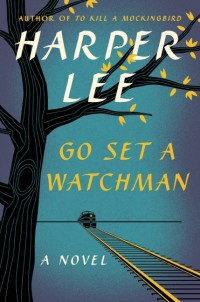Law prof's contrarian views about Atticus Finch are vindicated

Legal ethics expert Monroe Freedman wasn’t taken in by Atticus Finch.
The noble lawyer in To Kill a Mockingbird who defended a black man falsely accused of raping a white woman is no role model for lawyers, Freedman wrote in a 1992 column (PDF) for Legal Times. Finch took the case because of a court appointment and “an elitist sense of noblesse oblige,” Freedman wrote.
Finch knew there was a “colored balcony” in the courthouse. He “goes to segregated restaurants, drinks from segregated water fountains, rides on segregated buses,” Freedman wrote. He tells his children that the Ku Klux Klan is “a political organization more than anything” and he tells them that the leader of a lynch mob is “basically a good man” who “just has his blind spots.”
According to Freedman, Finch “lives his own life as the passive participant in that pervasive injustice. And that is not my idea of a role model for lawyers.” The New York Times summarized his views in this 1992 story.
Freedman, who died in February at the age of 86, was on to something, note Legal Times and the New York Times. In Lee’s new book, Go Set a Watchman, Atticus is portrayed in later life as a racist, forcing the grown-up Scout to confront how to resolve her opposition to her father’s bigoted views and her love for the man.
In Watchman, Finch opposes integration, complains about the NAACP, and asks his daughter: “Do you want Negroes by the carload in our schools and churches and theaters? Do you want them in our world?”
The Times reviewer, Harvard law professor Randall Kennedy, says Watchman could have been “a modern masterpiece” if Lee’s editor had focused on the book rather than urging Lee to instead write about the trial, as seen through Scout’s eyes. The result was To Kill a Mockingbird, which had “the appeal of a fairy tale and the makings of a popular movie,” Kennedy wrote.
Though Watchman isn’t Harper Lee’s best work, Kennedy says, it “does reveal more starkly the complexity of Atticus Finch, her most admired character. Go Set a Watchman demands that its readers abandon the immature sentimentality ingrained by middle school lessons about the nobility of the white savior and the mesmerizing performance of Gregory Peck in the film adaptation of To Kill a Mockingbird.”



